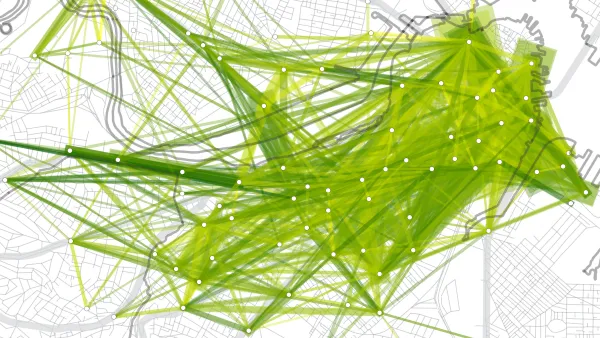Chief Innovative Technology Officer of Los Angeles, Peter Marx, recently stepped down. But first, he offers some lessons learned during his tenure, which included an L.A. mobility app and a successful open data initiative.

Chief Technology Officers are playing a more vital role in adapting governments to the evolving digital technologies that are allowing for more flexibility, transparency, and localized decision-making. Peter Marx, hired in 2014 by Mayor Eric Garcetti, served as the Chief Innovative Technology Officer of Los Angeles for two years after being recruited from Qualcomm Labs. In an exclusive interview with The Planning Report, Marx described how Los Angeles is more connected and shared his vision for how the city might function with ubiquitous digital connectivity.
Marx helped spearhead the Xerox-sponsored mobility app Go LA, which allows Angelenos to see all potential transit options and decide whether they want to get to their destination faster, greener, or cheaper. The app has integrated ride share, rail, bus services, and bike lanes to help remove worries from users.
In addition, Marx helped increase data services and Wi-Fi connectivity through working with AT&T and Google Fiber. Working with Mayor Garcetti, Marx explained how they led the effort for more broadband, cellular, and unlicensed spectrum activity across the city. According to Marx, “LA Metro [Metropolitan Transportation Authority] is putting Wi-Fi and cellular service into the subway systems and on buses, and LADOT is putting Wi-Fi onto the DASH buses. We put Wi-Fi into the bus shelters.”
Updating and modernizing the zoning code has also been a priority in Los Angeles. Marx helped launch the recode.la initiative to help simplify and modernize the zoning code. As Marx describes, "Recode.la is an initiative within the Planning Department to turn the zoning code into XML. This way, homeowners in any neighborhood can easily find out everything they’re allowed to do when redoing their kitchen, changing a wall, or any other project."
Marx successfully coordinated Recode LA's efforts with other open-data initiatives, working with numerous departments to work towards publishing "an open-source, community-supported set of tools to enable anyone in any city in the world to improve and use our solutions for their own applications."
Read more in The Planning Report.
FULL STORY: Chief Technology Officer Peter Marx’s Exit Interview: Led on Digitally Connecting LA

Analysis: Cybertruck Fatality Rate Far Exceeds That of Ford Pinto
The Tesla Cybertruck was recalled seven times last year.

National Parks Layoffs Will Cause Communities to Lose Billions
Thousands of essential park workers were laid off this week, just before the busy spring break season.

Retro-silient?: America’s First “Eco-burb,” The Woodlands Turns 50
A master-planned community north of Houston offers lessons on green infrastructure and resilient design, but falls short of its founder’s lofty affordability and walkability goals.

Test News Post 1
This is a summary

Analysis: Cybertruck Fatality Rate Far Exceeds That of Ford Pinto
The Tesla Cybertruck was recalled seven times last year.

Test News Headline 46
Test for the image on the front page.
Urban Design for Planners 1: Software Tools
This six-course series explores essential urban design concepts using open source software and equips planners with the tools they need to participate fully in the urban design process.
Planning for Universal Design
Learn the tools for implementing Universal Design in planning regulations.
EMC Planning Group, Inc.
Planetizen
Planetizen
Mpact (formerly Rail~Volution)
Great Falls Development Authority, Inc.
HUDs Office of Policy Development and Research
NYU Wagner Graduate School of Public Service



























